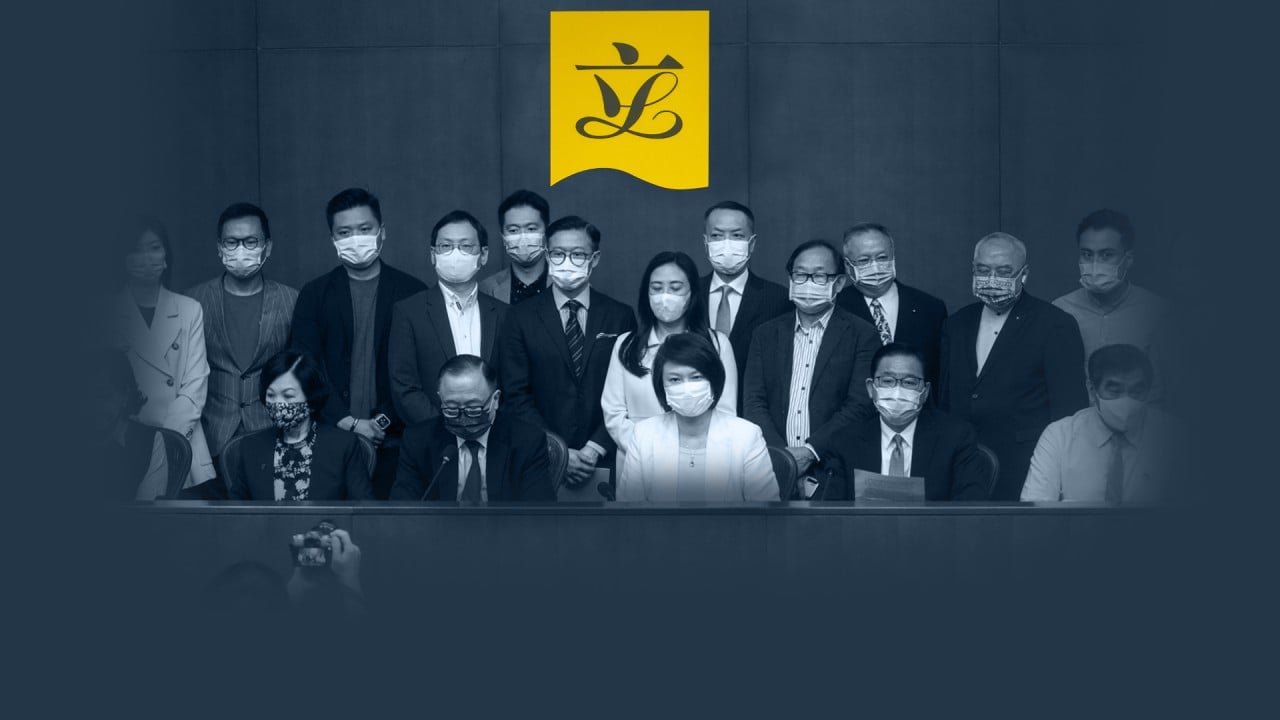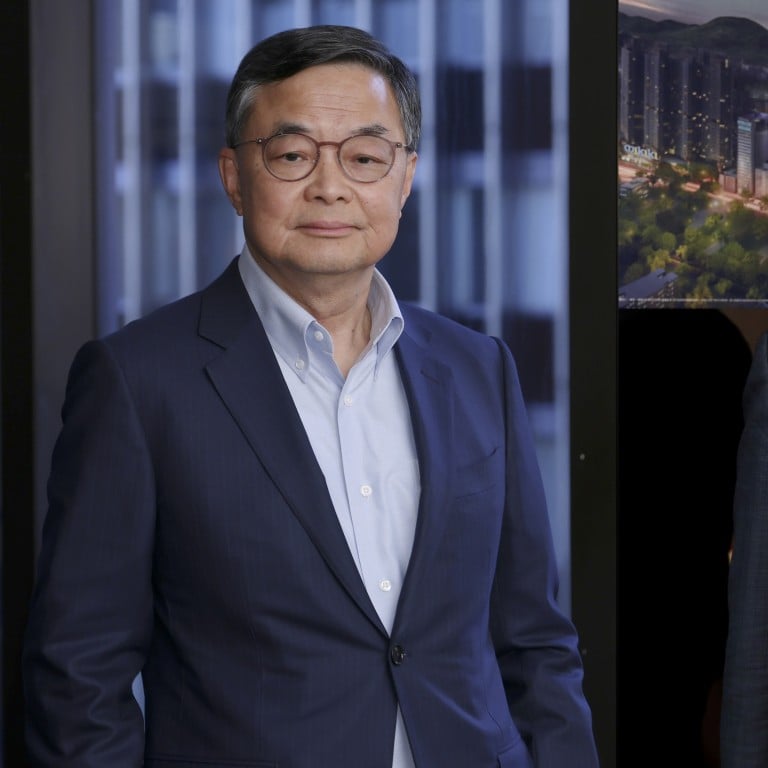
Beijing media misunderstood Hong Kong’s housing woes in blaming property tycoons for social unrest, Legco candidate Louis Loong says
- Housing crisis, high prices the result of land shortage, government red tape, says Louis Loong
- City’s most powerful tycoons back developers’ association chief for sector’s sole Legco seat
The Hong Kong Legislative Council’s sole seat for the real estate and construction sector will be contested for the first time in 17 years, with two candidates vying to reflect the interests of the city’s powerful property tycoons. Shamed by state media for hoarding land and blamed for the city’s sky-high home prices, the tycoons have seen their influence diminished under Beijing’s overhaul of Hong Kong’s electoral system.
“If you say young people lose hope in Hong Kong because they cannot afford to buy a home, and this is caused by developers hoarding land … I feel that this is a very lazy evaluation,” he said.
“If you really want to solve the problem, don’t stay at this superficial level. You try to understand how it came about.”
Hong Kong officials not decisive, tough enough to fix housing woes: Howard Chao
Instead, Loong argued the city’s high home prices were the result of a shortage of land caused by government red tape in planning and administration processes. He said United States monetary policy also resulted in a liquidity boom and a low interest rate environment in Hong Kong, which fuelled demand and drove up prices.
Noting state media had a “misunderstanding”, he added that Reda had produced a report to explain to the public about the land issues, stressing developers had not tried to hoard land, and that conversion of farmland for development was a long process that could take more than a decade.
The front runner in the race for the real estate and construction sector’s seat in Hong Kong’s legislature, Loong is the chief administrator of the high-powered Real Estate Developers Association (Reda).
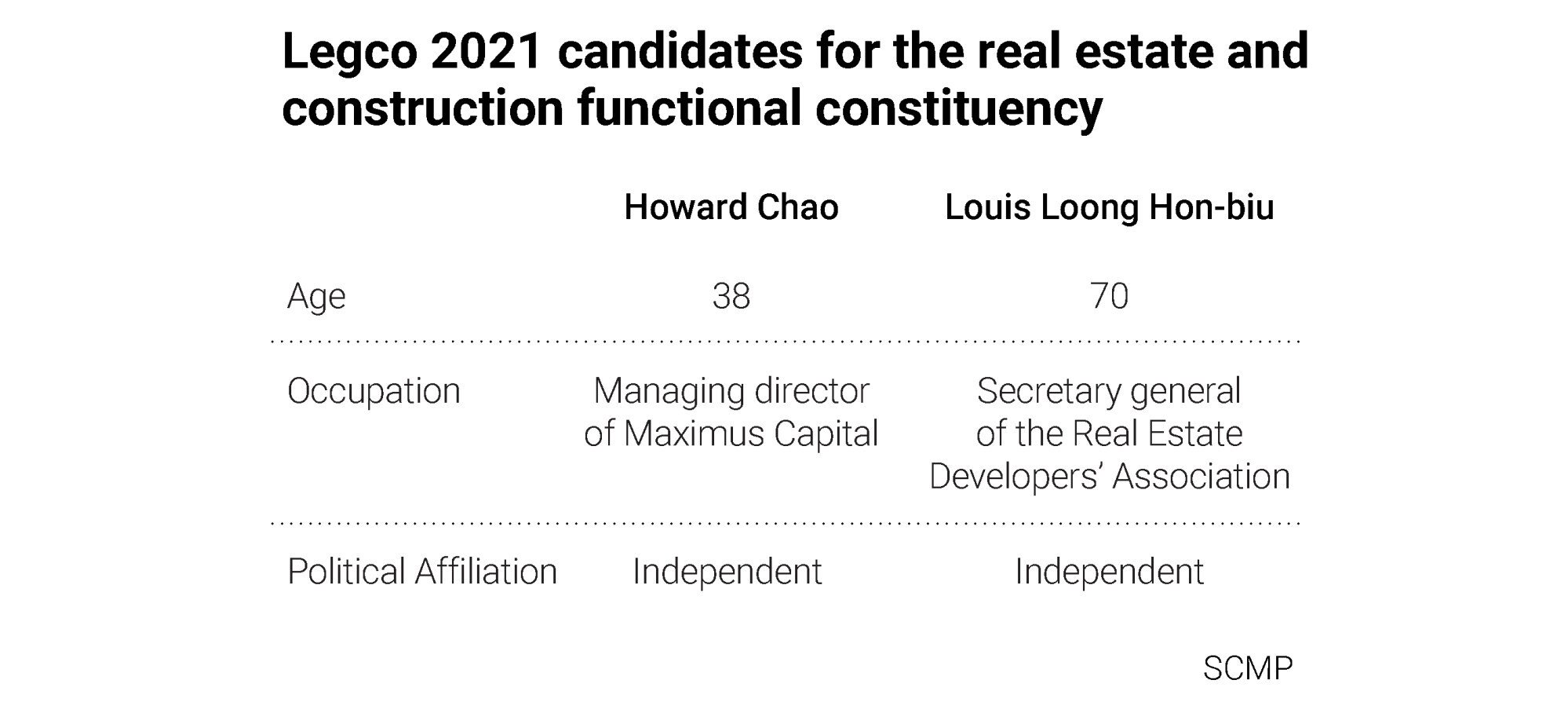
Its 60-member board includes tycoons Li Ka-shing of CK Asset Holdings, Lee Shau-kee of Henderson Land, Gordon Wu Ying-sheung of Hopewell Holdings, Robert Ng Chee Siong of Sino Land, and Adam Kwok Kai-fai of Sun Hung Kai Properties.
Loong said his bosses gave him 24 hours to consider running for the seat after long-time incumbent Abraham Razack decided not to seek re-election. Razack is understood to have heeded a signal from Beijing that it was time to step down.
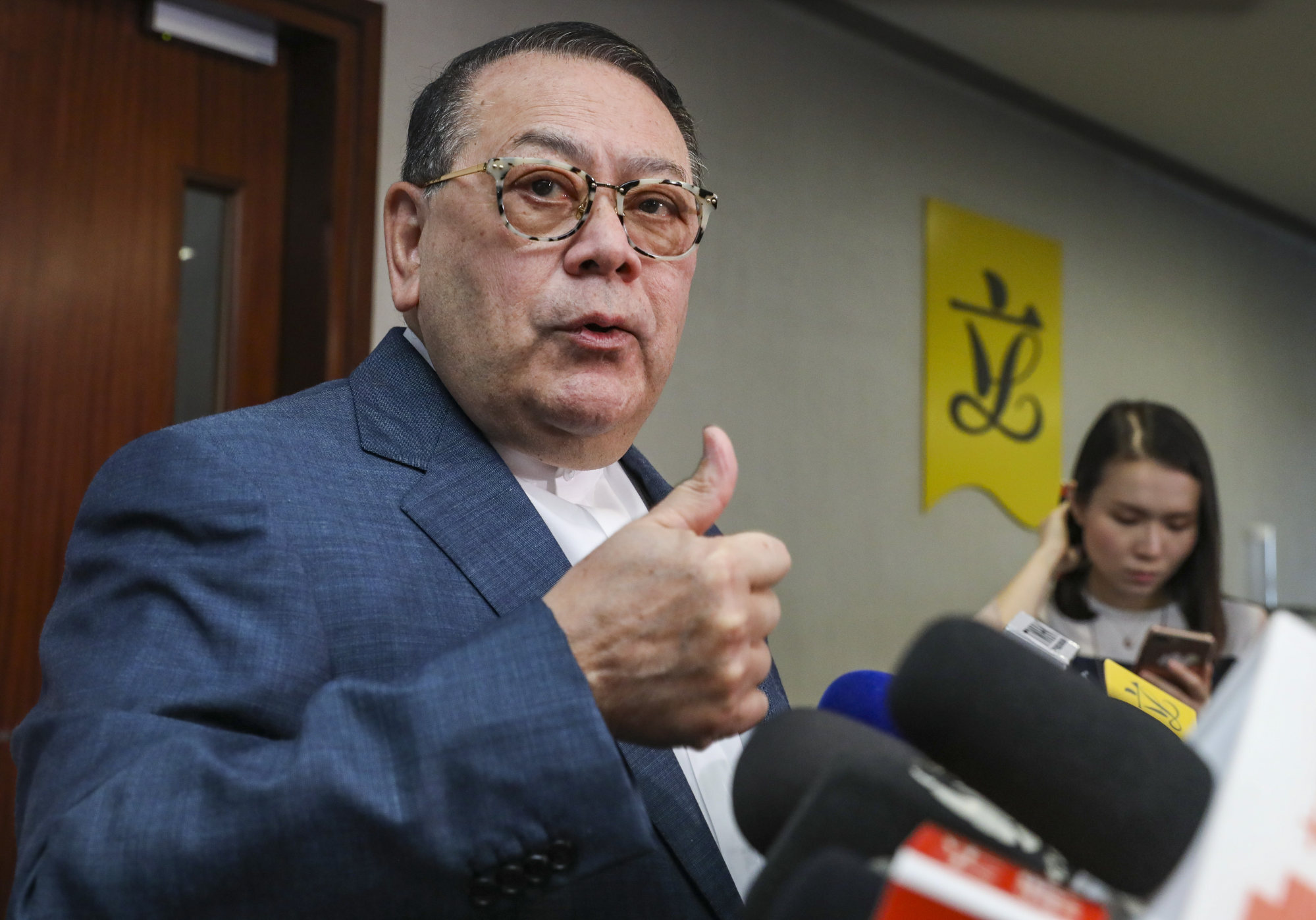
With no alternative candidate, and with his “emotional attachment” to Reda after more than two decades there, he said yes.
Loong joined Reda in 1999 after 24 years at HSBC and five years at Hong Kong Telecommunications. The bank instilled in him the qualities of loyalty and the ability to be versatile in taking on different tasks at short notice, he said.
While at the bank, he was posted to Canada in 1987 and acquired a Canadian passport. He was also among 50,000 privileged Hong Kong families granted British citizenship in 1990, a measure to stem a wave of emigration after Beijing’s crackdown on student protesters at Tiananmen Square a year earlier.
Loong said he had no intention of giving up his foreign passports and saw no conflict with Beijing’s new emphasis on “patriots ruling Hong Kong”.
If elected, he said he would keep an open mind about joining a party or forming an alliance with other lawmakers to push through his agenda.
Government splashes election ads across front pages of Hong Kong newspapers
Asked about public perceptions of the real estate industry, Loong noted that some past business practices might not have been agreeable to all.
“I’m not saying all our members are saints,” he said. “But we have been listening and made adjustments.”
Developers had, for example, lent their land or old buildings at nominal rents to deliver temporary homes for low-income families waiting for public housing, he said.
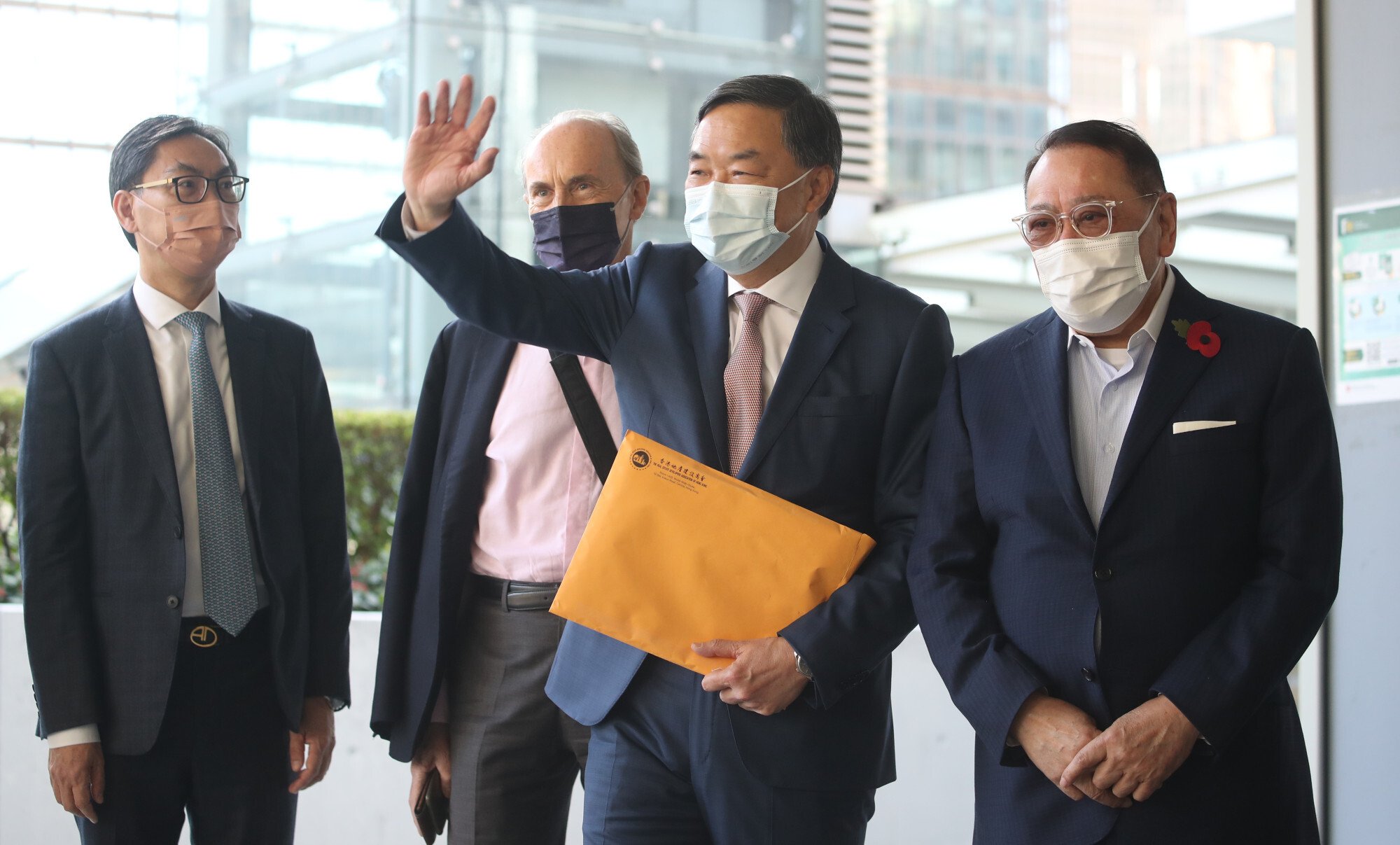
But he emphasised that solving Hong Kong’s housing woes had to start with the government. He called for a high-powered office to be set up to expedite efforts in new town construction, and simplify land administration and town planning approval regimes.
He pledged support for the Northern Metropolis blueprint to build an economic and residential hub housing about 2.5 million people in the New Territories near the border with mainland China.
He also agreed with a government suggestion to set a minimum size for flats in the private sector, saying he felt it should be at least 300 sq ft.
Who wants to be a Hong Kong lawmaker? A look at Legco aspirants
But he added that the emergence of tiny “nano flats” had to do with the land shortage and high land prices, which forced developers to build smaller homes that buyers could afford.
He also urged the government to scrap the extra stamp duties imposed in the past decade to curb speculation, saying they were counterproductive as they tightened supply in the secondary market with homeowners unwilling to trade flats.
With the Legco election just a fortnight away, Loong said: “I am not a political person. I’m more for reasoning and I don’t like finger-pointing. The new Legco will become a place for reasoning now that the electoral system has been enhanced. That’s why I dare to throw my hat into the ring.”







